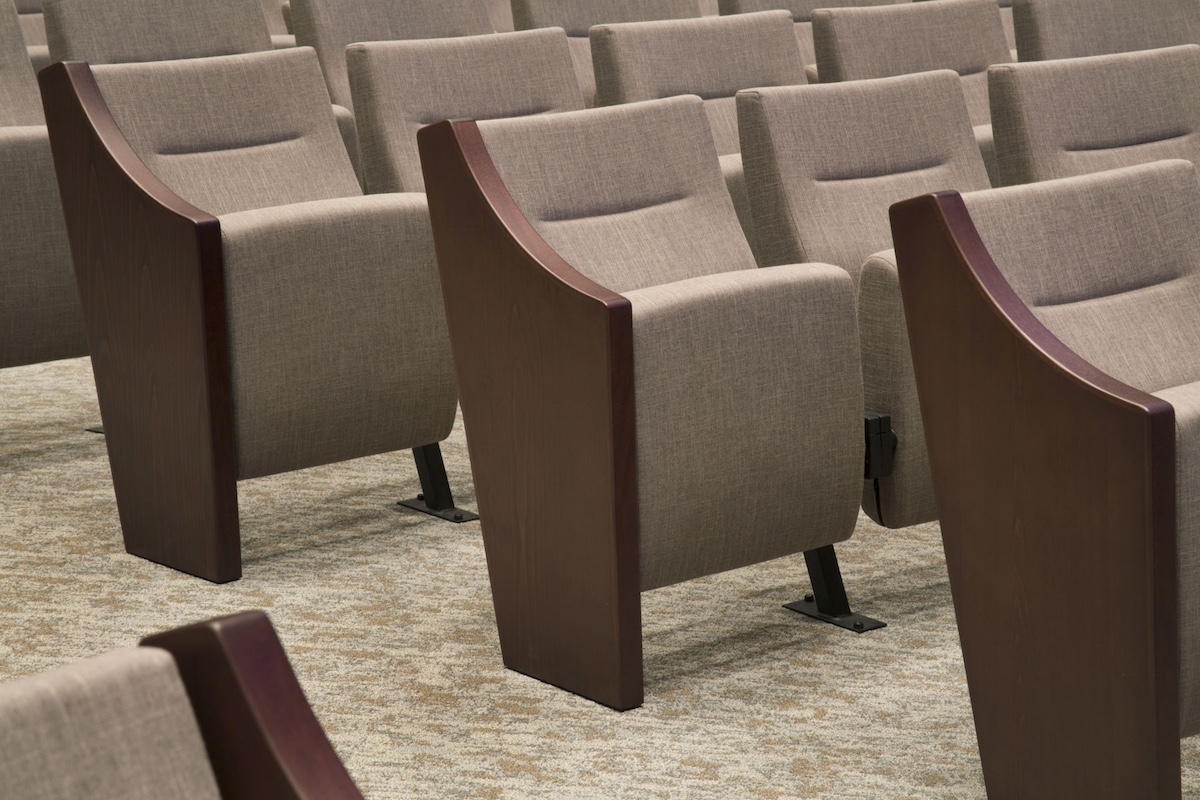Church platform chairs play a critical role in the design and functionality of worship spaces. These chairs are not just about providing seating; they reflect the aesthetic, comfort, and functional requirements of a congregation. Selecting the right platform chairs involves considering various factors such as design, material, ergonomics, and symbolism. This article delves into the importance of church platform chairs, their evolution, and how to choose the right ones for your place of worship.
Historical Evolution of Church Seating
Early Christian Churches
In the early Christian church, seating was often sparse. Congregants would stand, and only a few seats were available, typically for the clergy or wealthy patrons. These seats were usually simple benches or stools made from wood. The emphasis was on humility and simplicity.
Medieval Period
During the medieval period, churches became more elaborate, and so did the seating. Choir stalls and pews became more common, especially in larger cathedrals. The seats for clergy and choir members were often intricately carved and highly ornate, reflecting the importance of the church in society.
Renaissance and Baroque Periods
The Renaissance and Baroque periods saw further embellishment in church furniture. Chairs and pews were often designed with intricate carvings, gilding, and upholstery. These changes reflected broader artistic movements and the church's role as a patron of the arts.
Modern Era
In the modern era, church seating has become more diverse and functional. While traditional designs are still popular, contemporary churches often opt for simpler, more flexible seating arrangements. This shift reflects changes in worship practices and architectural styles.
Types of Church Platform Chairs
Traditional Wooden Chairs
Features:
- Made from solid wood like oak, cherry, or mahogany.
- Often feature intricate carvings and high backs.
- Sturdy and long-lasting.
Pros:
- Durable and can last for decades.
- Aesthetically pleasing and match traditional church architecture.
Cons:
- Can be heavy and difficult to move.
- Less comfortable compared to padded chairs.
Padded Platform Chairs
Features:
- Constructed with a wooden or metal frame.
- Seats and backs are padded with foam and covered in fabric or leather.
- Available in various styles and colors.
Pros:
- More comfortable for prolonged sitting.
- Available in various designs to match different church interiors.
Cons:
- Fabric can wear out and may need reupholstering.
- Generally more expensive than wooden chairs.
Stackable Chairs
Features:
- Made from metal or plastic with padded or non-padded seats.
- Designed to be lightweight and easy to stack.
Pros:
- Highly versatile and easy to store.
- Ideal for multipurpose spaces.
Cons:
- May not be as aesthetically pleasing for traditional church settings.
- Less durable than solid wood chairs.
Custom-designed Chairs
Features:
- Custom-built to fit the specific needs and design of the church.
- Can incorporate unique symbols, materials, and design elements.
Pros:
- Perfectly match the church's architecture and aesthetic.
- Can include personalized elements like engravings or embroidery.
Cons:
- Significantly more expensive.
- Longer lead time for production.
Factors to Consider When Choosing Church Platform Chairs
Comfort
Comfort is paramount when selecting church chairs, especially for services that last an hour or more. Chairs with adequate padding and ergonomic design can help congregants focus on worship rather than discomfort.
Durability
Church chairs are a significant investment, so they need to be durable. Materials like solid wood and high-quality metal can withstand the test of time. Additionally, chairs should be easy to maintain and clean.
Aesthetics
The visual appeal of the chairs should complement the church's interior design. Traditional churches may prefer wooden chairs with ornate designs, while contemporary churches might opt for sleek, minimalist styles.
Flexibility
Many modern churches use their spaces for multiple purposes. Stackable or folding chairs can be easily moved and stored, making them ideal for multifunctional spaces.
Symbolism
Church furniture often carries symbolic significance. The choice of materials, colors, and designs can reflect theological themes and the church's identity. For example, using rich, dark woods can symbolize tradition and stability, while lighter colors and materials can reflect openness and modernity.
Popular Brands and Manufacturers
Sauder Worship Seating
Sauder is a well-known manufacturer of church furniture. They offer a wide range of seating options, from traditional wooden pews to modern stackable chairs. Sauder is recognized for their craftsmanship and durability.
Church Chairs by ComforTek
ComforTek specializes in comfortable, ergonomic church seating. Their chairs are designed to provide maximum comfort while being durable and aesthetically pleasing.
KIVIK
KIVIK is known for their contemporary designs and high-quality materials. They offer a range of seating solutions that can be customized to fit the unique needs of each church.
Maintenance and Care
Proper maintenance is essential to prolong the life of church platform chairs. Regular cleaning, especially of upholstered chairs, can prevent wear and tear. For wooden chairs, periodic polishing and tightening of screws can keep them looking and functioning well.
Cleaning Tips
- Wooden Chairs: Dust regularly and use a wood polish to maintain shine.
- Padded Chairs: Vacuum upholstery and spot clean any stains with a mild detergent.
- Metal Chairs: Wipe down with a damp cloth and dry thoroughly to prevent rust.
Church platform chairs are more than just seating; they are an integral part of the worship experience. From traditional wooden designs to modern, flexible seating options, the right chairs can enhance the comfort, aesthetics, and functionality of a church. By considering factors such as comfort, durability, aesthetics, flexibility, and symbolism, church leaders can make informed decisions that benefit their congregations for years to come. Investing in high-quality church platform chairs is an investment in the spiritual and communal life of the church.




